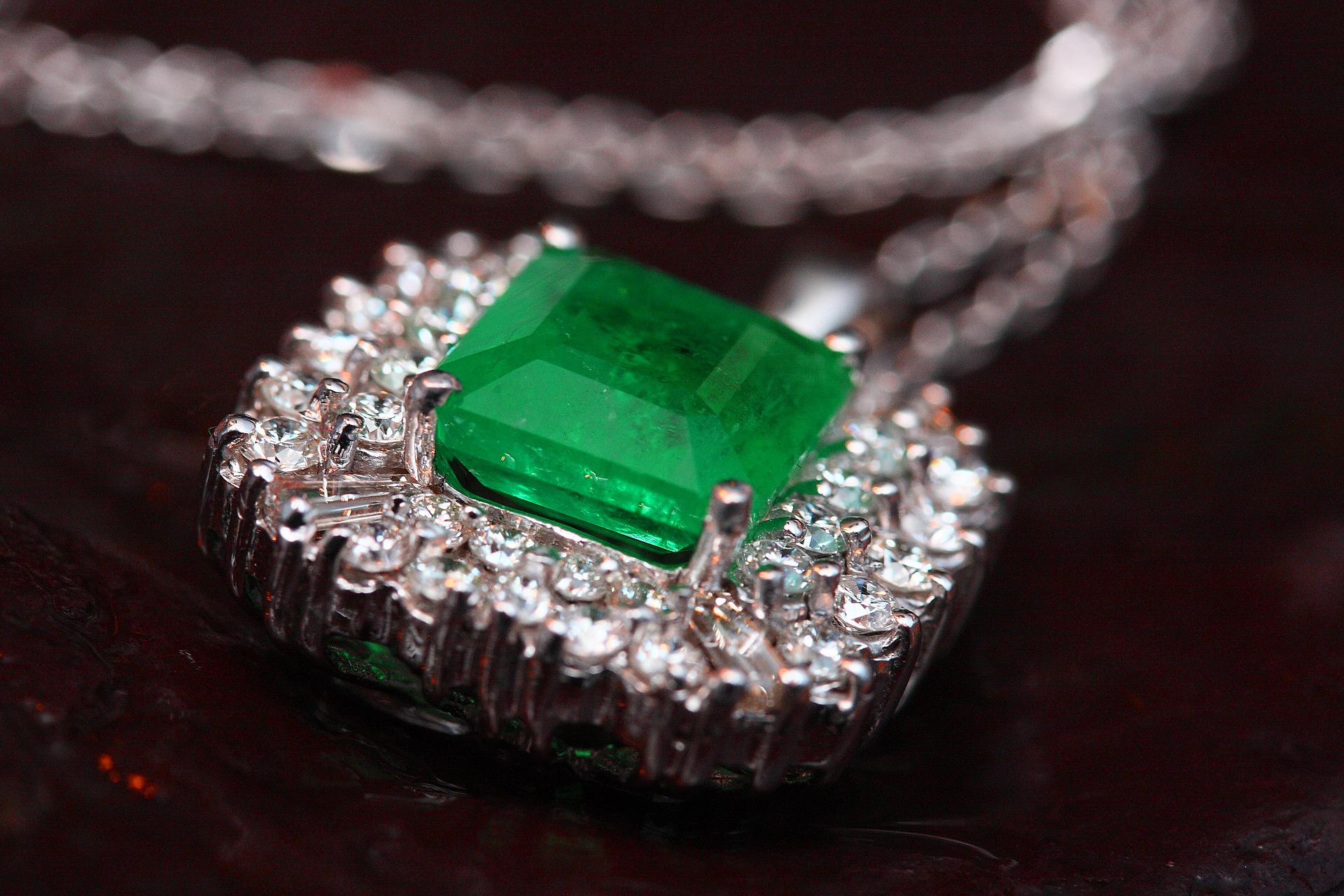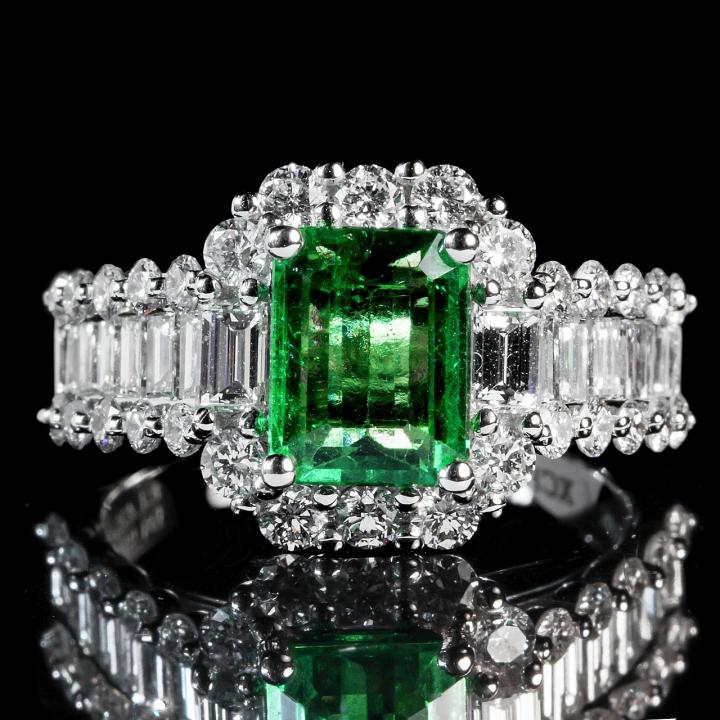Perhaps you recall the Emerald City in The Wizard of Oz, named for the vibrant, scintillating hues of nature’s greenest gem. Emeralds are also the birthstone for May. For centuries, emeralds were thought to possess healing powers and reduce stress. Learn more about the symbolism, meaning, and history of emeralds.
Emerald’s Color
Emeralds can range in color from light green with blue or yellow tones to deep, rich green. The finest emeralds have a deep green color—sometimes touched with a hint of blue—offering translucence, depth, and clarity. The green color comes from impurities of chromium, vanadium, or a combination of both. Iron will also affect the color, creating bluish tones.
Known for its inclusions, which are foreign materials trapped within the gem, emeralds are unique stones. Some say that the inclusions can look like mossy plant life under a microscope. The inclusions can also be an indication of a gem’s origin.
The emerald is a variety of the mineral beryl, which forms with six sides. March’s birthstone, aquamarine, is also a type of beryl.
Emerald Meanings, Symbolism, and Folklore
- Emerald’s English name is borrowed from Old French esmeraude, which stems from smaragdos, the Ancient Greek word for this gem.
- Pliny the Elder once said that “nothing greens greener” than an emerald.
- Hindu teachings associated emeralds with the planet Mercury, while Western traditions connected the stone with Venus.
- According to legend, emeralds were one of four stones given by God to the Israelite King Solomon.
- It has been linked to producing a calming effect and loving energy. Ancient civilizations considered it a symbol of fertility and immortality.
- Over the years, emeralds have been associated with inspiration and patience, rebirth and renewal. It has also been thought to make those who wear it more intelligent, quick-witted, and passionate speakers.
- At one time, it was believed to help relieve issues with the muscles, spine, and chest area. The emerald was also once thought to cure diseases such as cholera and malaria.
- It has long been associated with the eyes, from helping to reduce eye strain to opening a window to the future for those who place it under their tongue.
- Today, emeralds symbolize loyalty, new beginnings, peace, and security. The gem is also believed to relieve stress.
- The emerald is the gem given to celebrate the 20th and 35th wedding anniversaries.

History of the Emerald
- The earliest recorded mining of emeralds occurred in 330 B.C. in Egypt, although it’s estimated that the oldest gems are close to 3 billion years old.
- The May birthstone, emerald, was a favorite of the Egyptian queen Cleopatra. The gem was her royal jewel and adorned her palace. During her reign, Cleopatra also laid claim to all the emerald mines in Egypt.
- The Egyptians as a whole were enamored with the gem, using it both in jewelry and in burials, burying the stones with monarchs as a sign of protection.
- The Emerald Buddha, which is actually made from a form of jasper, is housed in The Temple of the Emerald Buddha on the grounds of the Grand Palace in Bangkok, Thailand.
- In L. Frank Baum’s novel, The Wonderful Wizard of Oz, Dorothy follows the yellow brick road to the Emerald City to find the wizard.
- In the 1980s, Seattle, Washington, became nicknamed “The Emerald City.”
- An emerald pendant owned by Elizabeth Taylor sold for more than $6 million in 2011.
Where are Emeralds Found?
Egypt is the most ancient source of emeralds and remained the only significant source for hundreds of years.
In the 16th century, deposits found in Colombia expanded the locations for mining the gem to South America. It continues to be a major source of emeralds, along with mines in Brazil and Africa, most notably Zambia.
Emeralds are also found in Pakistan and Afghanistan, while North Carolina is home to the largest deposits of the stone in the United States.
Emeralds in Jewelry
With a Mohs Hardness rating of 7.5 to 8, emerald gems are often used in rings, necklaces, bracelets, and earrings.
It’s important to take special care of emeralds, using warm, soapy water to clean them. Avoid exposing gems to hot water, heat, and harsh chemicals, as well as storing them close to harder gems like diamonds, which can cause scratching.

Learn More












Comments